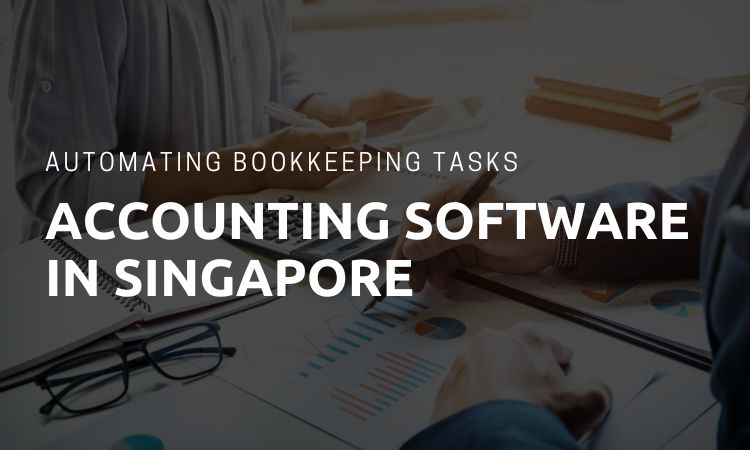Singapore Plans Postgraduate Accountancy Program

Sage Accounting Software Grows Ecosystem To Bring New Technology To Small and Medium Businesses
May 3, 2016
Manage Your Business with Technology By Our Sage_UBS Accounting Software
May 12, 2016SOURCE: NEW YORK TIMES SINGAPORE
SINGAPORE — Aiming to turn Singapore into a leading center for international accountancy and financial management by 2020, a government-appointed committee this month recommended the introduction of a new, postgraduate accountancy qualification program characterized by “global recognition, international portability and Asian market value.”
Set up in 2008, and bringing together leading local accountants, executives, academics and officials, the Committee to Develop the Accountancy Sector also proposed the creation of an institute to train corporate financial officers.
Bobby Chin, a former managing partner at KPMG who chaired the committee, said its recommendations sought to enhance the supply of accountancy professional while deepening their capabilities and expertise.
The new qualification would replace Singapore’s existing Certified Public Accountant status, which “is not yet well known internationally” said Jeremy Hoon, president of the Singapore branch of the British accountancy body, the Association of Chartered Certified Accountants, or A.C.C.A, and a partner with KPMG in Singapore.
The A.C.C.A. and the national accountancy body, the Institute of Certified Public Accountants of Singapore, currently run a Certified Public Accountant exam program from which 800 to 1,000 students graduate every year. Additionally, graduates of local universities and some Australian universities can also earn the Singapore C.P.A. qualification. “The result is that there are no uniform examination and training standards,” Mr. Hoon said.
The aim of the proposed change is to build up Singapore as “a place of choice for students wanting to become qualified accountants, and where non-accountancy graduates can pursue qualification through various programs,” Mr. Chin said. “By 2020, Singapore can be a place where qualified accountants also come to pursue certain specializations.”
Measured by revenue, the Asia-Pacific accountancy market was worth $30.8 billion in 2008 and is likely to grow to $38.3 billion by 2013, according to Datamonitor, a business research provider. Singapore’s share is now about $860 million, or 0.47 percent of its gross domestic product. Mr. Chin’s committee aims to raise that to 1 percent of G.D.P., in line with the levels of Britain and Australia.
Gillian Yeo, interim dean of Nanyang Business School and a member of the committee, said the biggest attraction of the proposed new program would be the increased job mobility it offered through global recognition. “This is important if you want to position Singapore to attract the best of global talent,” she said. “We need that type of qualification.”
The three-year postgraduate course would include mandatory, structured, on-the-job professional experience with approved training organizations.
“Accountants and aspiring accountants should benefit from the practice-focused training, which would allow them to apply theories and knowledge in a practical setting,” said Tony Mallek, chief financial officer of Singapore Press Holdings, publisher of the Straits Times newspaper and media group, in a submission to the committee. The company has offered itself as an approved training organization.
“They should also find it less daunting to learn and develop skills and competencies in a structured environment,” he said.
Pang Yang Hoong, a professor at Singapore Management University and a member of the committee, acknowledged that developing a globally recognized postgraduate professional certification would be “very challenging.”
One way forward could be through mutual recognition agreements with other national professional accountancy bodies, allowing appropriately qualified Singaporean accountants to practice abroad, she said.
Mr. Hoon said he expected that many foreign students would in any case be drawn to Singapore to study for the A.C.C.A. qualification because of the association’s large international membership, and broad recognition. Beyond that, they would go on with additional training and examinations for the Singapore qualification only if they wanted to practice in Singapore itself, or saw enhanced value in the Singapore brand. “It is for Singapore to invest in and develop a Singapore C.P.A. qualification which is well sought after, and provide adequate internship and training opportunities associated with the Singapore brand, in Singapore-based companies and accounting firms,” he said.
Mr. Chin’s committee also called for Singapore to become a “center of excellence” for training chief financial officers and accountants specializing in fields like international tax law, risk management, business valuation and internal audit.
Mr. Chin said an institute for chief financial officers could attract trained accountants from around the region seeking to further their careers by developing core, broadly applicable corporate finance skills. Examples that he cited included valuation for merger and acquisition deals; credit and market risk management; and familiarity with financial markets and instruments.
Still, Anthony Modrich, an associate director at Robert Walters, a recruitment firm in Hong Kong, noted that many educational programs were already available through universities and the representative bodies for senior accountancy and finance professionals. Unless Singapore can find a way to offer something uniquely different, “they might find that the market is already well covered,” he said.
Please visit us on www.onestopaccounting.com




